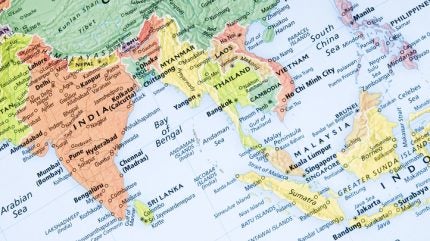
The World Health Organization (WHO) has reported a significant increase in cancer cases across the Southeast Asia region, projecting an 85% rise in new cases and deaths in the region by 2050.
In a statement released on World Cancer Day (4 February), WHO’s Southeast Asia regional director Saima Wazed stated that the area recorded 2.4 million new cancer cases and 1.5 million deaths in 2022, marking a major public health crisis.

Discover B2B Marketing That Performs
Combine business intelligence and editorial excellence to reach engaged professionals across 36 leading media platforms.
Despite these figures, progress has been made in cancer control across several countries in the region. Bhutan’s Health Flagship project screened more than 90% of its target population for gastric, cervical, and breast cancer, linking individuals with positive results to diagnostic and treatment services. Additionally, eight countries in the region have introduced nationwide human papillomavirus (HPV) vaccination, an intervention aimed at reducing cervical cancer incidence.
WHO has emphasised the role of vaccination in cancer prevention. In a separate post on X, the organisation noted that HPV and hepatitis B vaccines play a key role in reducing the risk of cervical and liver cancer, respectively.
In 2022, the WHO updated its recommendations for cervical cancer vaccines to promote wider coverage. The revised guidance states that a single-dose schedule for girls aged 9-14 years provides sufficient protection against HPV, instead of the standard two to three doses. The cost of HPV vaccines remains high compared to other vaccines, and reducing the number of required doses could improve affordability and accessibility, particularly in low- and middle-income countries.

US Tariffs are shifting - will you react or anticipate?
Don’t let policy changes catch you off guard. Stay proactive with real-time data and expert analysis.
By GlobalDataThe effectiveness of the HPV vaccine has been observed in other regions. In the UK, the HPV vaccine has reduced cervical cancer rates by up to 85%. The National Health Service (NHS) in England has set a goal to eliminate cervical cancer by 2040, with HPV vaccination serving as a cornerstone of this strategy. In Southeast Asia, however, cervical cancer screening coverage remains low. Seven countries are reporting rates below 50%, short of the 70% target necessary for elimination, stated Wazed.
Tobacco use, a major risk factor for several high-burden cancers, has declined at the fastest rate in the WHO Southeast Asia region. The organisation has been working with governments in the region to support tobacco control efforts, which contribute to reducing cancer risks.
Sonali Johnson, head of knowledge, advocacy and policy at the Union for International Cancer Control (UICC) echoed this point, telling Pharmaceutical Technology that the conditions in which people live need to be brought into the policy dialogues, to better meet people’s needs about cancer prevention, diagnosis and care.
Despite these efforts, the WHO highlights key challenges in cancer control across Southeast Asia, including inconsistent national policies, late diagnoses, and limited access to care. Only six countries include cancer services in national health benefit packages, and palliative care remains inadequate. Many countries also lack cancer registries and surveillance systems, hindering new and innovative data-driven interventions.
In response to these challenges, WHO has collaborated with member states and partners to develop the WHO Southeast Asia Regional Strategy for comprehensive cancer prevention and management 2024-2030. Approved at the seventy-seventh regional committee, the strategy emphasises a people-centred approach, aiming to shift focus from purely clinical outcomes to the lived experiences of patients and caregivers.
Elsewhere on World Cancer Day, the UK has announced a clinical trial to evaluate AI in breast cancer screening to improve wait times and reduce the number of staff needed to look over mammograms.
This development follows the US’s decision to withdraw from WHO under an executive order signed by President Donald Trump. The withdrawal raises concerns about the impact on global health funding and technical expertise. Johnson stated that the long-term effects of the US’ departure remain unclear but noted that the country has played a key role in global health initiatives.


